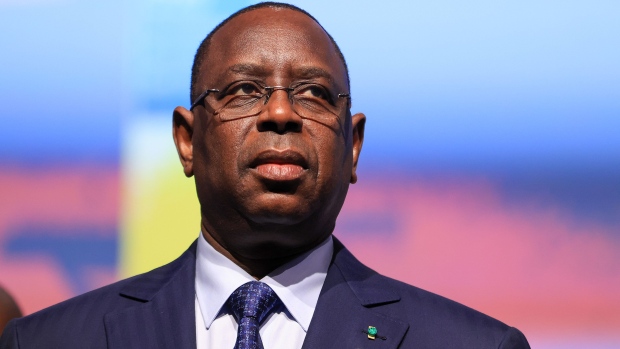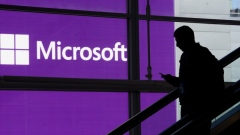Feb 26, 2024
Senegal’s Sall Moots Amnesty Law That May Free Opposition Leader Sonko
, Bloomberg News

(Bloomberg) -- Senegalese President Macky Sall will ask lawmakers to consider passing an amnesty bill, a measure that may potentially lead to the release of the country’s main opposition leader Ousmane Sonko, who’s been in detention for the past seven months for fueling deadly protests.
The draft law, which aims to free political protesters arrested since 2021, will be submitted to parliament on Wednesday, Sall said at the opening of a two-day national dialog on Monday. The talks were convened to try and bring an end to a political crisis that was precipitated by Sall calling off Feb. 25 elections.
The authorities have already released hundreds of people who were detained during demonstrations linked to Sonko’s arrest and conviction, and the postponement of the vote. In an interview on state television last week, Sall said he wasn’t opposed to Sonko’s release. A spokesman at the presidency didn’t respond to a text message seeking comment.
Prices on Senegal’s dollar eurobonds rose on Tuesday, lowering yields on the notes due May 2033 by three basis points to 8.9%.
Sonko, 49, was detained in July on charges of making statements that fueled a series of demonstrations, with the government accusing him of plotting an insurrection. A former tax inspector, he was seen as the biggest threat to the ruling coalition’s candidate, Prime Minister Amadou Ba, but he was disqualified from standing in the election after he was convicted of making libelous statements against the tourism minister.
It remains unclear whether Sonko will be released, although on paper he could qualify for amnesty, said Maurice Soudieck Dione, associate professor in political science at the Gaston Berger University in Saint-Louis, a city in the north of the country.
Macodou Ndour, Sonko’s lawyer, said he still needed to see the content of the new legislation.
“We welcome an amnesty if it’s to erase the mock charges against my client,” he said in a text message. “What we won’t accept is if it lets those responsible for civilian deaths and violence against protesters evade justice.”
Read More: What’s Gone Wrong in Normally Stable Senegal?: QuickTake
Human rights groups and families of those detained during protests have also questioned a general amnesty that would erase crimes committed by those on both sides of the political divide.
Sall, whose current term is due to end on April 2, previously said he had delayed the election to allow for an inquiry into the candidate-vetting process after corruption accusations were leveled against two judges in the Constitutional Council, the nation’s top court, which oversaw the process. Lawmakers later voted to delay the elections to Dec. 15, only for the court to rule the decision was unlawful.
On Monday, Sall reiterated his pledge to hold the vote as soon as possible and before the country’s rainy season in June, and said he had voluntarily taken the decision to consult about when it should be held.
“The prerogative of setting the date of the election lies with the president, because it is done by decree,” he said. “It would’ve been very easy for me to issue a decree to set the election date and everyone would’ve had to accept that, whether you like it or not.”
(Updates with bonds in fourth paragraph, comment from analyst, lawyer from sixth.)
©2024 Bloomberg L.P.








